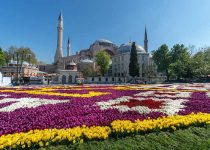Turkey Travel: Essential Tips for a Safe Journey
Türkiye Safe Travel Guidelines
Here is a list of Türkiye travel advice:
1. General Safety Overview:
Generally, it is safe to travel to Turkey, although there are still some sensitive areas with the impact of the recent earthquake. Then, there is still an ongoing threat from various terrorist groups that are bent on attacking tourist areas. Attacks may well take place without warning, usually in crowded places, from malls to hotels and transport networks, and sometimes at sacred places. It is prudent that travelers are vigilant, keep away from crowds, regard the local authority’s warning, and keep abreast of what is happening via local media broadcasting. So, having made the decision to trip Turkey, the next step is checking how safe is to travel to Turkey prior to planning the expedition.
2. Cultural Sensitivity:
It is indispensable to have cultural sensitivity to travel in a breeze across Turkey. Research Turkey’s local customs, greetings, and gestures that will help you move about the place respectfully. Dress humbly, especially in pious or conservative places, and always solicit permission before capturing photographs of locals. Some fundamental Turkish phrases from “Merhaba” (hello) to “Teşekkür ederim” (thank you) would augment your experience. Thus, such cultural nuances would not only benefit your own travel encounter but also build good relations, leaving behind respectful, long-lasting memoirs in the minds of Turkish people.
3. Natural Disasters & Environmental Hazards:
Turkey is at an elevated risk of natural disasters. Natural calamities, from earthquakes to floods and wildfires, cause havoc, resulting in loss or harm of lifesaving materials. Toss important documents into waterproof bags, and have a way of contacting family and friends. Bushfires also burn hot during summer, especially on the Mediterranean and Aegean coastlines. Earthquakes become more frequent in the vicinity of the North-Anatolian fault. Listen for the three steps of earthquake safety: drop, take cover, and hold. Follow local authority advice, keep abreast of any environmental concerns that might crop up, and change travel plans.
4. Political Climate and Travel Restrictions:
For concerns connected to security threats, the U.S. and Canadian governments propose avoiding trips to Hakkari and Sirnak as well as adjacent locales on the Syrian border. Political tensions in the country raise the terrorism threat, predominantly in urban centers. Remain vigilant in tourist concentrations and avoid crowds & political demonstrations, and defend your belongings. Turkey visit visa policy diverges with your nationality, and so checking local rules, such as Turkey visa on arrival and/or Turkey single entry visa alternatives, before scheduling your tour is advisable.
5. Transportation Safety:

Turkey’s public transport arrangement be it Istanbul’s public transportation or in other cities is safe and sound for travelling. For example, you can use buses, trams, and metros. Generally, using unregistered taxis should be avoided. Make certain you are cautious about your belongings. Do not take food or drinks from strangers so that there would be fewer chances of risk. Prefer reputed hotels that have security measures and let someone know your itinerary. Join the famed Smart Traveler Enrollment Program (or STEP) so that you are updated about the safety conditions as well as follow up on all Turkey airport rules and regulations to stay away from delays.
6. Health & Medical Precautions:
For a healthy excursion to Turkey, consume only bottled/boiled water and abstain from eating raw foods. Be careful of food-borne ailments; unpasteurized dairy is also prohibited. If injury occurs, wash the wound thoroughly and seek further medical attention. Bring along a list of doctors and hospitals as well as have a thorough understanding of your health insurance in case of probable medical evacuation. To those who ask, is Turkey safe for tourists in health risks? Providing the right hygiene and food safety precautions would help them.
7. Weather & Seasonal Considerations:
A health-inclusive travel insurance plan, such as medical evacuation, must be acquired before going to Turkey. Check with a healthcare specialist about the need for vaccinations. Take sufficient medication, especially when visiting rural spots or for those with specific health requirements. Be informed about season and health risks, including insect-borne diseases, and take insect repellents with you.
8. Food and Water:
One must consume exclusively bottled/boiled water bearing sealed lids as well as shun ice cubes for a safer and more enjoyable adventure. Avoid any raw/undercooked kinds of foods and wash fruits/vegetables prior to consumption. Preferably, choose food from trusted vendors, more so in the case of street food, and make sure that the meal is rightly cooked. Exercise caution when it comes to foods or drinks because wandering around Turkey can be so smooth and healthy.
9. Safety Customs & Border Control:
For your passport to stay legitimate, counting six months from the arrival date, most travelers will need to achieve the Turkey visit visa, excluding those from Turkey visa-free countries. Get ready for stern security checks and follow Turkey’s airport rules and regulations. Always make sure your entry and exit stamps are valid, avoiding issues on your stay.
10. Local Laws & Regulations:
Possess a photo ID, preferably your passport, and still obey Turkish laws. Drug possession, disrespect towards Turkey or its leadership, and other illegal activities, such as artifact hunting, are subject to harsh penalties. Be careful regarding local rules, and get consular help in case of an arrest. It must also be remembered that terms for a single entry or a Turkey multiple entry visa should always be reconfirmed before any travel.
Emergency Contacts
112: Unified emergency contact
110: Rescue & fire
155: Police (key Turkey cities)
156: Gendarmerie (rural areas)
11. Avoiding Scams & Tourist Traps:
Do not accept unsolicited offers, whether in the form of guides or services, and travel using a secure mode of transport such as registered taxis. By doing this, you will surely have a safe excursion. An additional consideration is for diners to ask for their rates upfront at the restaurant so they will not have an unpleasant surprise at the end of their meal for something they never asked for. Always check whether the guides are certified, and be attentive to various scams. Keep a close oversight on personal belongings, especially crowded areas, to improve and maintain a smooth and safe traveling experience. So, is Turkey safe to travel? Following all these precautionary measures assures that your Turkey expedition is safe to travel.
12. Outdoor Adventure:

Outdoor adventures, regardless of surveying Turkey in July or year-round, span from hiking the incredible Lycian Way to Cappadocia’s superb hot air ballooning and elating water sports along the beautiful Mediterranean coast. For safe adventures, use a licensed operator, adhere to safety instructions, and wear the safety equipment provided. Most importantly, Turkey is an adventurer’s ecstasy with a priority on safety.
13. Respect for Traditions/Religion:
Turkey is principally a Muslim country; thus, it has extensive cultural habits around its religion. One should not overlook to be extra cautious in public eating and drinking on the occasion of Ramadan. Modest clothing would apply here, especially in rural and conservative places, and remove your shoes when accessing mosques. Always ask someone if you can document a photograph, especially in spiritual sites, and regard Turkey’s profound traditions.
14. Language Tips:
Whereas most people interact in English at tourist places, knowing a handful of fundamental Turkish words will do you much good. Simple greetings like “Merhaba” (Hello) and “Teşekkür ederim” (Thank you) will build a long road in putting you into the mood of the local culture and turning your exploration into an impressive one. Speaking a little bit of Turkish makes everybody feel warm to you and adds to your tour experience.
Conclusion
In conclusion, a successful journey to Türkiye hinges on preparation and caution. Research and planning are paramount, to ensuring familiarity with local customs and laws. Travel insurance and health precautions provide a safety net, and understanding the culture cultivates respect. Knowing language will aid communication, Transportation and food safety should also never be compromised. Preparedness for emergencies is crucial, emphasizing responsible travel for a positive impact. By adhering to these travel advice and safety measures, visitors can embrace Türkiye’s rich offerings while prioritizing their well-being and creating lasting memories of a safe and enjoyable adventure.
FAQs
Q1. How should a female traveler dress in Turkey?
Women can wear summer dresses, short skirts, crop tops, and shorts in every place, sans mosques or any other religious place. The Turks are popular for putting on smart casuals. Males must keep away from wearing shorts in religious spots. They can wear shirts that are short-sleeved and long trousers.
Q2. Is Turkey safe to travel to?
Yes, traveling in Turkey is absolutely safe. Turkey’s most secure cities are Ankara and Istanbul.
Q3. Is a visa needed to visit Turkey?
Most travelers require a visa to enter Turkey. One can check the visa requirements depending on their nationality at the official site or, more preferably, with an experienced Turkey visa service provider.
Q4. What is the ideal time to explore Turkey?
The perfect time to visit Turkey are spring (April-June) and autumn (September-October) as the climate stays pleasant. The summers in Turkey (July-August) will be hot, particularly in inland areas.
Q5. Is drinking tap water in Turkey safe?
While tap water in some areas of Turkey is treated as safe for consumption, it is suggestive to drink filtered or bottled water, particularly in less developed or rural areas.
Q6. What is Turkey’s currency?
Turkey’s currency is the Turkish Lira. Credit cards are widely accepted in leading cities, yet it is wise to carry little cash, particularly in rural areas.
Q7. What are some must-see places in Turkey?
Turkey is rich in both natural and historical attractions. The must-see places comprise Ephesus, Pamukkale, Cappadocia, and Istanbul, as well as coastal regions of Bodrum and Antalya. Also, avail yourself of the perks of the free things to do in Turkey.
Q8. How is the transportation network in Turkey?
Turkey boasts a highly developed transportation network. You can opt for taxis, domestic flights, buses, trains, and cabs for an intercity tour. Public transportation systems within cities, such as trams and buses, are common.
Q9. What are the famous Turkish local cuisines?
Besides being delectable, Turkish cuisine is diverse. Explore local specialties like baklava, kebabs, mezes, and certainly Turkish coffee and tea. Be adventurous and attempt street foods.
Q10. What is Turkey’s official language?
Turkey’s official language is Turkish, yet English is spoken widely.



